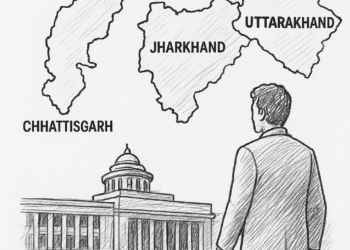New Delhi: When Kaziranga National Park floods during the monsoons, rhinos, elephants, and deer cross the highway to reach higher ground in the Karbi Anglong Hills. Too often, they meet speeding trucks and buses instead of a safe passage. Now, the Cabinet has cleared a massive road project designed to change that story.
The Cabinet Committee on Economic Affairs (CCEA), chaired by Prime Minister Narendra Modi, on Wednesday approved widening the 85.675-km Kalibor–Numaligarh section of NH-715 in Assam into a four-lane corridor — with a unique twist: it comes with built-in wildlife-friendly measures.
At the heart of the ₹6,957-crore project is a 34.45-km elevated road through Kaziranga, allowing animals to move freely beneath. Alongside, 30.22 km of existing stretches will be widened, while new greenfield bypasses of 11.5 km at Jakhalabandha and 9.5 km at Bokakhat will ease congestion.
For Assam, the road is more than concrete and asphalt. It will link Guwahati, Nagaon, Golaghat, Numaligarh and Jorhat; connect three airports — Tezpur, Lilabari, and Jorhat — and three railway stations — Nagaon, Jakhalabandha, and Vishwanath Chariali; and improve access to tourist and religious landmarks from Kakochang Waterfall to Maha Mrityunjay Temple.
Officials estimate the project will handle 13,800 passenger car units daily by FY25 and generate 15.42 lakh person-days of direct and 19.19 lakh person-days of indirect employment. Its alignment integrates with NH-127, NH-129, and SH-35, creating smoother movement of goods and passengers across Assam’s industrial, social and cultural hubs.
Most importantly, conservationists hope the elevated corridor will cut down on the frequent animal deaths that have plagued the park-road interface for years.
When completed, the Kalibor–Numaligarh section will not just speed up travel across Assam but also attempt something rare — to let economic development and wildlife conservation travel side by side.

















